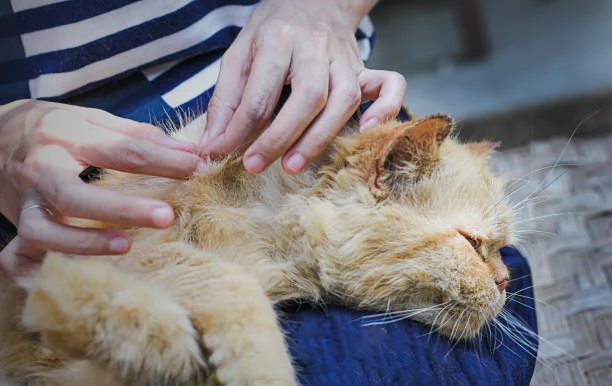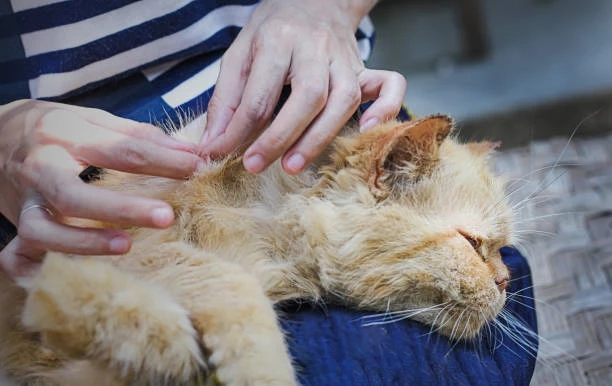
Itchy skin may look like a small issue, but for cats, it creates constant irritation. Scratching, licking, or chewing does not only damage the coat but also impacts sleep and mood. Many owners first notice the sound of restless grooming at night. This is often the beginning of an issue that, if untreated, leads to open wounds, infections, and long-lasting pain. Without timely treatment for cat itchy skin in Ontario, the condition can reduce energy, lower appetite, and even weaken the immune system. Cats cannot explain their discomfort in words, so scratching becomes their language of pain. Owners who act early protect their pets from prolonged suffering and also prevent conditions that may take months to resolve once advanced.
Why Do Cats Develop Persistent Itching?
Itchy skin is never random. There is always a reason behind the scratching. Fleas, mites, or ticks are among the most frequent triggers. Even one flea bite can start an allergic reaction in sensitive cats. Beyond parasites, food proteins, pollen, or household dust can create severe irritation.
Some cats suffer from fungal infections such as ringworm, which not only cause irritation but are contagious to other pets and humans. Hormonal imbalances or internal disease can also show up first as changes in skin and coat health. Stress adds another layer since anxious cats tend to over-groom until bald spots appear.
Symptoms That Should Never Be Ignored
Cats are experts at hiding pain, but itchy skin often shows in clear signals. Repeated licking or biting of one area, especially the belly or paws, is one of the first signs. Red patches, bumps, or scabs soon follow. Some cats lose patches of hair, while others develop rough or oily coats.
Mood changes also reveal discomfort. A normally social cat may hide, avoid touch, or become irritable. Some even stop playing or eating as the irritation distracts them from daily routines. These changes may look small but reveal a condition that could worsen fast.
How Vets Find the Root Cause
Effective care starts with finding the exact trigger. Veterinarians begin with a physical exam, checking for fleas, mites, or fungal growth. They may take skin scrapings for microscopic analysis. Blood tests or allergy panels can reveal reactions to food or environmental allergens.
In some cases, vets recommend food elimination trials, where certain ingredients are removed from the diet and reintroduced slowly to identify triggers. For cats with repeated flare-ups, thorough testing prevents endless cycles of temporary relief and relapse.
Proven Treatments That Actually Work
The right solution depends entirely on the diagnosis. For fleas, long-term parasite prevention is the key. For fungal infections, antifungal creams, shampoos, or oral medication clear the problem. If bacteria enter scratched skin, antibiotics may be required to heal infections.
Cats with allergies may need anti-itch medication along with diet changes. Omega-3 supplements sometimes help reduce inflammation in the skin. Topical sprays or medicated wipes can calm hot spots and allow healing.
Treatment does not just mean controlling symptoms. It focuses on breaking the cycle of itching and preventing recurrence. A complete plan, supervised by a vet, ensures cats regain comfort and normal daily life.
Daily Habits That Protect Skin Health
Beyond medical care, daily habits make a huge difference. Using flea prevention year-round reduces the most common trigger for skin irritation. Feeding balanced diets with high-quality protein supports healthy coats and reduces allergic responses.
Routine grooming keeps coats free of mats and helps owners notice early signs of skin changes. Stress management also matters. Cats in calm environments with play and enrichment are less likely to over-groom from anxiety. Regular check-ups ensure issues are spotted before they become advanced.
Why Early Intervention Saves Cats From Pain
The longer itchy skin continues, the more damage occurs. Scratching opens pathways for bacteria and yeast, making treatment harder. Open sores may lead to secondary infections requiring strong medication. Cats with long-term irritation often develop behavior changes that take time to reverse.
By seeking help at the first signs of constant scratching or hair loss, owners reduce the chances of severe infections. Early care is not only more effective but also less costly than treating advanced conditions. Cats recover faster and return to normal routines sooner.
The Link Between Skin Health and Overall Wellness
Healthy skin supports more than appearance. It allows cats to rest well, stay active, and maintain strong immunity. A cat that scratches all day and night becomes stressed, eats less, and loses energy. This lowers resistance to other illnesses.
Emotional well-being is also tied to comfort. Cats that feel constant irritation may hide, withdraw, or lash out. Restoring skin health improves not only physical condition but also behavior, interaction, and overall quality of life.
The Role of Veterinary Expertise in Healing
While online tips or home remedies may seem easy, they often mask symptoms without solving the real issue. Some over-the-counter products are unsafe for cats and can even make irritation worse. Veterinary professionals provide safe, targeted solutions backed by proper testing and experience.
Their role extends beyond giving medication. They guide owners in prevention, monitor recovery, and adjust treatments as needed. This expert oversight ensures cats not only recover but also stay healthy long term.
Wind Up:
Cat itchy skin should never be dismissed as a small annoyance. It is a signal of an underlying problem that demands timely care. Early veterinary attention offers lasting relief, protects against infections, and restores daily comfort. In severe cases, supportive options such as dog and cat IV fluid therapy may also help stabilize pets during recovery.
If your cat shows signs of itchy skin, do not wait. Book a veterinary appointment today to uncover the cause and begin effective treatment. Acting now will prevent suffering and give your cat a healthier, happier life.



